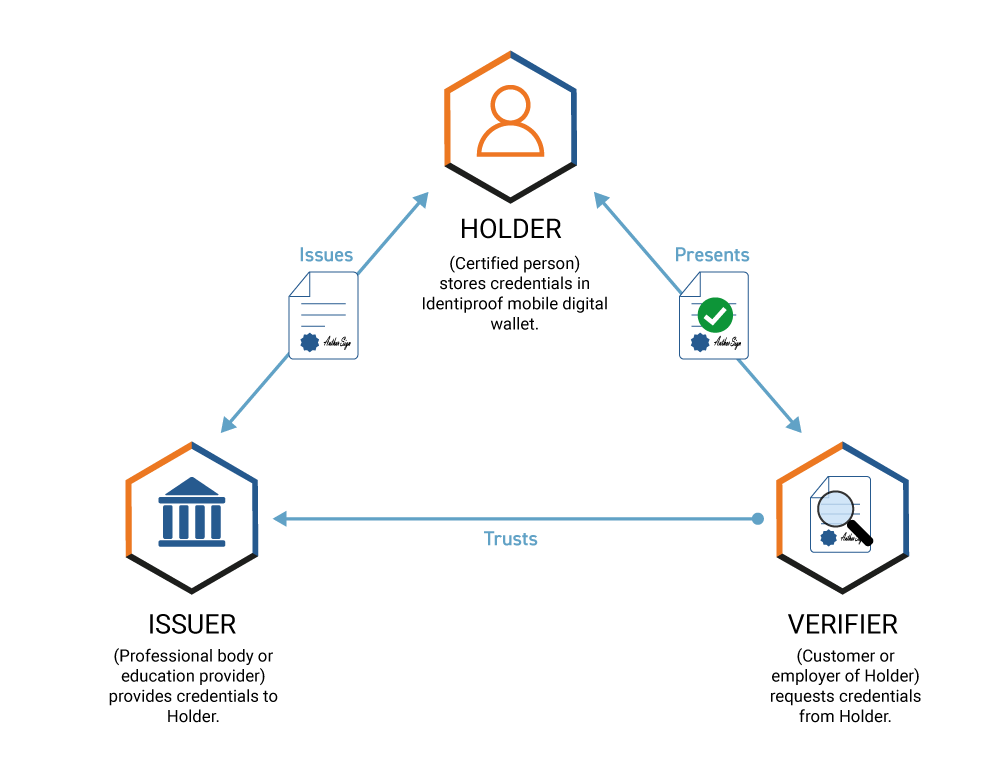Verifiable Credentials (VCs)
 Verifiable Credentials (VCs) are the core component of the ZUNI platform, enabling secure and trustworthy sharing and verification of information. VCs provide a standardized format based on W3C standard for expressing claims or statements about individuals or entities, allowing them to present and prove their credentials digitally, without losing privacy. Here's an overview of Verifiable Credentials and their key elements:
Verifiable Credentials (VCs) are the core component of the ZUNI platform, enabling secure and trustworthy sharing and verification of information. VCs provide a standardized format based on W3C standard for expressing claims or statements about individuals or entities, allowing them to present and prove their credentials digitally, without losing privacy. Here's an overview of Verifiable Credentials and their key elements:
- Each VC is issued, held, presented and verified by DIDs in the system.
- Credential Content: The content of a Verifiable Credential includes claims or statements about the holder's attributes, achievements, or qualifications, ...
- Credential Metadata: Metadata provides additional information about the Verifiable Credential itself, such as the issuer, issuance date, expiration date, and other relevant contextual information. This metadata enhances the trustworthiness and context of the credential, enabling verifiers to make informed decisions during the verification process.
- Digital Signatures: Verifiable Credentials are digitally signed by the issuer using cryptographic algorithms to ensure the integrity and authenticity of the credentials and it can be easily verified. Also, the content is private by default and no one except issuer and holder could open it.
- Selective Disclosure: Selective disclosure refers to the capability of the holder to present specific information from their VCs to verifiers. It enables privacy-preserving interactions by allowing the holder to share only the necessary information required for a specific verification request. The zero-knowledge proof cryptography utilized by ZUNI ensures that sensitive personal data is not disclosed during the verification process.
By utilizing Verifiable Credentials within the ZUNI platform, organizations can issue tamper-resistant, digitally signed credentials that holders can securely manage and present for verification. This framework enhances data integrity, privacy, and trust between issuers, holders, and verifiers, enabling efficient and reliable credential verification processes.